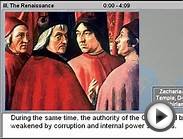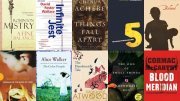In 1938, in the midst of the Great Depression, Franklin Roosevelt declared that the South was “the nation’s number one economic problem.” By any measure—education, literacy, per capita wealth—the South lagged far behind the rest of the United States. But the region which was more associated with racism than reading was on the verge of making astonishing contributions to American literature. The years between the two world wars were a remarkably fertile period in American literature. Many of the period’s literary giants hailed from the unlikeliest of places—the South.

It wasn’t the first time that a particular region of the country could claim to have a monopoly on the nation’s greatest writers. For much of the mid-1800s, New England—specifically Massachusetts—could have been considered the nation’s literary capital. That was understandable, given the region’s well-established schools.
But the South of early twentieth century was likely the last place anyone would have expected to produce a generation or more of tremendous literary talent, and that’s precisely what happened. In the space of twenty years, Eudora Welty, Robert Penn Warren, and Thomas Wolfe published their first works. And then there’s Faulkner, who dwells among the Southern pantheon like Zeus atop Mount Olympus.
The Origin Debate
The reasons for what would become known as the Southern Renaissance are still debated. One of the most persistent explanations for the region’s literary outpouring came from Allen Tate, himself a part of the movement. According to Tate, it was the experience of World War I, an event which forced the South to enter the modern world, which acted as the trigger. He argues: “With the war of 1914-1918, the South reentered the world—but gave a backward glance as it slipped over the border: that backward glance gave us the [Southern Renaissance], a literature conscious of the past in the present.”
Another argument posits that adversity—of which the South has had plenty—breeds creativity. Certainly the South’s artistic contributions are not limited to literature. The region has produced a bumper crop of musicians, and many of the distinctly American music forms—blues, jazz, and country, to name just three—are also distinctly Southern.
What was it about the Southern Renaissance that made it so… Southern?
What is it that gave the literature of the Southern Renaissance its Southernness? There are several unifying themes that run throughout the movement. Southern writers of the interwar years were among the first from their region to refuse to exalt the Confederacy and participate in the cultish veneration of the “Lost Cause.” For these Southerners, the history of their region was not something to be honored with a monument in the courthouse square. The past was a burdensome thing, weighted with the legacies of slavery, defeat, and Reconstruction.
Source: ocbookshoppe.com
You might also like:



Related posts:
- World Literature for Children
- World Literature Virtual class
- World Literature importance
- World Literature Renaissance
- World Literature High School Syllabus
























One website that specialises in short stories is Paraxis.
It's an online only, quarterly short story magazine. Each issue has a theme such as 'power' or 'libraries'.
Michael Morecock commented in the introduction to the first issue:
It's accessible at:…